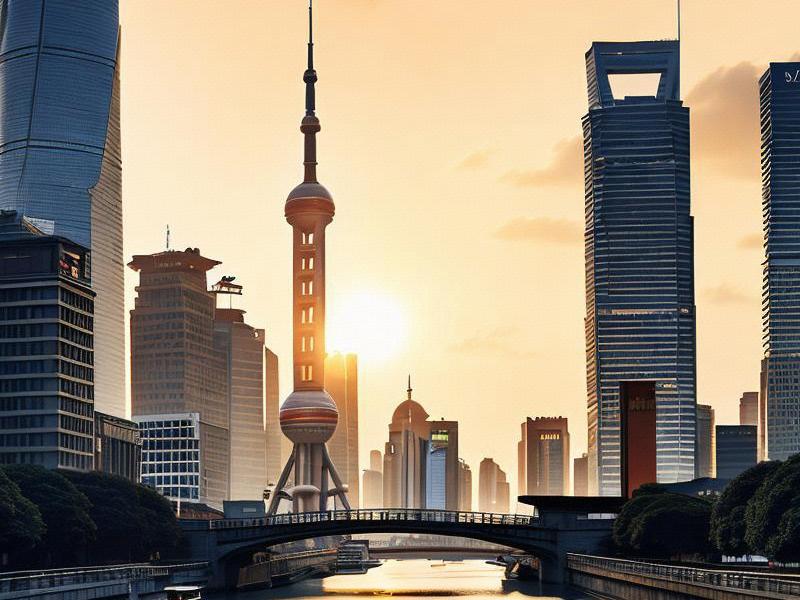This article delves into the multifaceted character of Shanghai, exploring its blend of modern innovation and rich traditional heritage. As one of the world's most dynamic cities, Shanghai serves as a beacon of China's rapid urbanization and economic transformation.

Nestled along the banks of the Huangpu River, Shanghai is a city that seamlessly blends the old with the new. Known as the 'Pearl of the Orient,' it is a global financial hub, a cultural melting pot, and a testament to China's economic prowess. The city's skyline, dominated by the iconic Oriental Pearl Tower and the futuristic Shanghai Tower, is a visual representation of its rapid urban development.
Shanghai's history dates back to the 11th century when it was a small fishing village. Over the centuries, it grew into a major port city, benefiting from its strategic location at the mouth of the Yangtze River. In the 19th century, Shanghai became a treaty port, opening its doors to foreign trade and influence. This period saw the construction of the French Concession, the British Concession, and the International Settlement, which left a lasting architectural legacy that is still visible today.
The Bund, a historic waterfront area, is a showcase of this colonial past. Lined with grand buildings in various architectural styles, it offers a stunning contrast to the modern skyscrapers of Pudong across the river. The Bund's night views, with the city's skyline illuminated, are a must-see for visitors.
Shanghai's economic transformation began in the late 20th century when China initiated its reform and opening-up policies. The establishment of the Shanghai Stock Exchange in 1990 marked a significant step in the city's financial development. Today, Shanghai is one of the world's largest financial centers, hosting major international events such as the World Expo in 2010 and the China International Import Expo.
上海龙凤千花1314 The city's economic success is not limited to finance. Shanghai is also a hub for technology and innovation. The Zhangjiang Hi-Tech Park is home to numerous high-tech companies and research institutions, fostering a vibrant startup ecosystem. The city's commitment to innovation is evident in its smart city initiatives, which aim to integrate technology into urban management and services to improve the quality of life for its residents.
Culturally, Shanghai is a city of contrasts. It is known for its vibrant art scene, with galleries, theaters, and music venues scattered throughout the city. The Shanghai Museum, housed in a stunning modern building designed by I.M. Pei, is renowned for its extensive collection of Chinese art. The city's culinary scene is equally diverse, offering everything from traditional Shanghainese cuisine to international flavors.
The spirit of Shanghai is encapsulated in its people. Known as 'Shanghainese,' they are often described as cosmopolitan, entrepreneurial, and fashion-conscious. The city's nightlife, with its bustling bars, clubs, and restaurants, reflects this vibrant spirit. From the historic French Concession to the trendy neighborhoods of Xintiandi and Tianzifang, Shanghai offers a wide range of entertainment options.
Shanghai's urban development is a model for sustainable growth. The city has invested heavily in green infrastructure, including parks, green spaces, and sustainable transportation systems. The Maglev train, which connects the city center to Pudong International Airport, is a testament to its commitment to innovation and environmental sustainability.
上海龙凤419杨浦
Despite its rapid development, Shanghai has managed to preserve much of its historical and cultural heritage. The Yu Garden, a classical Chinese garden built in the Ming Dynasty, is a serene oasis in the heart of the city. The nearby Yuyuan Bazaar offers a glimpse into traditional Chinese culture, with its shops selling everything from silk to tea.
Shanghai's role in global affairs is also noteworthy. As a member of the World Trade Organization and a founding member of the Asian Infrastructure Investment Bank, the city plays a significant role in international economic cooperation. Its free trade zone, established in 2013, is a pilot area for China's broader reform agenda, attracting foreign investment and fostering innovation.
The city's future looks promising, with ongoing projects aimed at enhancing its global status. The Hongqiao Integration Zone, which combines transportation, business, and logistics, is expected to further solidify Shanghai's position as a global hub. The city's commitment to sustainability and innovation will be key to its continued success.
上海品茶网 In conclusion, Shanghai is a city that embodies the best of both worlds. It is a place where ancient traditions coexist with cutting-edge modernity, where history and progress blend seamlessly. As Shanghai continues to grow and evolve, it remains a symbol of China's remarkable journey from a closed society to a global powerhouse.
The city's story is one of resilience, adaptability, and ambition. It is a story that reflects the broader narrative of China's transformation, offering insights into the challenges and opportunities of rapid urbanization and economic development. Shanghai's journey is not just a local story; it is a global narrative that resonates with the aspirations of cities around the world.
As we look to the future, Shanghai stands as a beacon of hope and possibility. It is a city that has proven time and again that it can adapt to change, embrace innovation, and preserve its unique identity. In doing so, it continues to inspire and captivate the world, reminding us all of the power of human ingenuity and determination.